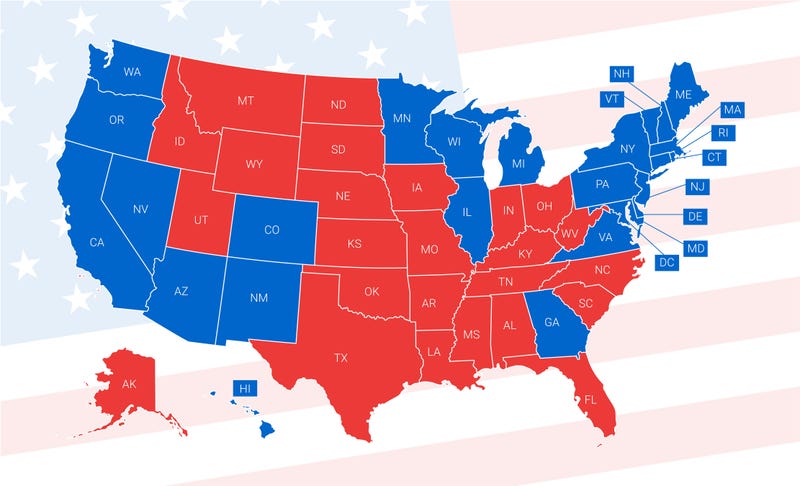
The electoral college is one of the most unusual parts of any democracy in the world. The bizarre system was invented as a compromise among the Founding Fathers more than two centuries ago – so why are we still stuck with it?
Elaine Kamarck from the Brookings Institution joined KNX News’ daily political show Countdown 2024 to discuss our country’s strange election process.
Listen here:
Kamarck explained that the Electoral College started as a concession to small states that didn’t want to be overrun by the residents of more populous states.
“These states were really more concerned about being autonomous actors than they were about being one union,” she said. “So the electoral college was essentially a political deal, you know, to get them all together because otherwise you wouldn't have gotten all those small states to join on.”
Kamarck said that throughout the 20th century, the winner of the popular vote always won the electoral college. But in the 21st century, the popular vote winner has lost the electoral college in two out of six elections so far.
What changed? As agriculture was automated, people gradually moved out of the middle of the country to urban areas on the coasts – but the distribution of electoral votes hasn’t been shifted to accurately reflect each state’s current population, leaving the biggest states in the union woefully underrepresented.
“Let me give you one fact: one elector represents over 700,000 people in California. One elector in Wyoming represents 195,000 people,” Kamarck said.
Kamarck said we’re unlikely to get rid of this unbalanced system for the same reason it was created in the first place: small states don’t want to get rid of it.
Since the Electoral College is enshrined in the constitution, the only way to change it is with an amendment ratified by three-fourths of the states…and good luck convincing smaller states to give up their disproportionate electoral power.
But there is one other option: the National Popular Vote Interstate Compact.
Kamarck said 17 state legislatures have already approved the NPVIC, which would require them to award their electoral votes to whoever wins the national popular vote. If enough states join in, it would effectively ensure that the winner of the popular vote also takes the electoral college.
The compact doesn’t go into effect until the states that are on board have a total of 270 or more electoral college votes between them, and there’s still a way to go before the threshold is reached. But Kamarck said it’s “probably the only way we could do this without a constitutional amendment.”
Want to get caught up on what's happening in SoCal every weekday afternoon? Click to follow The L.A. Local wherever you get podcasts.
Listen to the full episode above to hear from Ann Ravel, who used to serve on the Federal Election Commission, about how regulators are keeping track of the billions being spent in this year’s campaign cycle, and catch new episodes of Countdown 2024 live at 2:30 p.m. every weekday through Election Day.
Follow KNX News 97.1 FM
Twitter | Facebook | Instagram | TikTok
